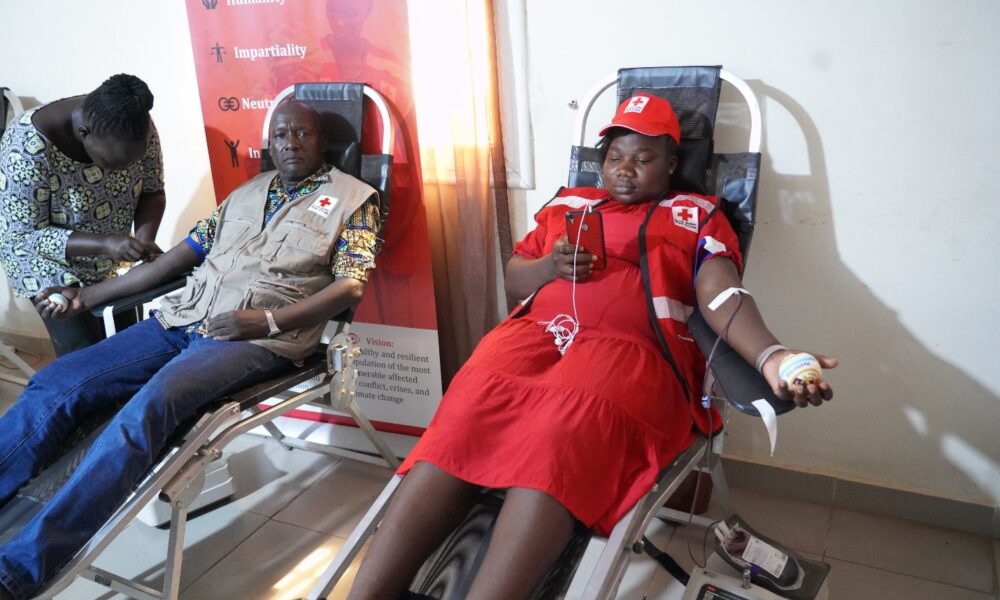By Kidega Livingstone
The current economic crisis has led to a critical shortage of blood supplies in the country’s health facilities and blood banks.
Potential donors are hesitant to give blood due to fears of losing their livelihoods and lack of access to food as a result of the economic downturn.
“Some people don’t know the importance of blood donation, others fear losing their lives, and the current economic crisis has contributed a lot because people lack what to eat,” said Christine Abina, Deputy Secretary General for Support Service at the South Sudan Red Cross.
Abina explained that the fear of losing their lives and the lack of food due to the economic crisis have discouraged many people from donating blood.
This has resulted in a severe shortage of blood, which is putting the lives of patients, especially children and women, at risk.
“South Sudan experience blood shortages on a daily basis, which is why we insisted that blood donors continue donating blood so that we can be able to save the lives of our people,” Abina said during the celebration of World Blood Donor Day in Juba yesterday.
The South Sudan Red Cross, in collaboration with its partners, has been working to raise awareness and encourage more people to donate blood. They have managed to collect 9,000 units of blood, which has helped save many lives.
Áder Macar Achiek, Undersecretary at the Ministry of Health, emphasized the need for good infrastructure in health facilities to ensure the proper storage and use of donated blood.
“Adequate blood supply needs good and modern infrastructure so that blood donated can be kept safely to save the lives of our people in this country,” Achiek said.
The South Sudan Red Cross has active blood donation programs across the country, involving various communities, including the Indian Embassy, the United States Embassy, the Ugandan Community, the Somalian Community, churches, the University of Juba, media houses, and secondary school students.
Abina urged the public to continue donating blood to address the critical shortage and save lives.




